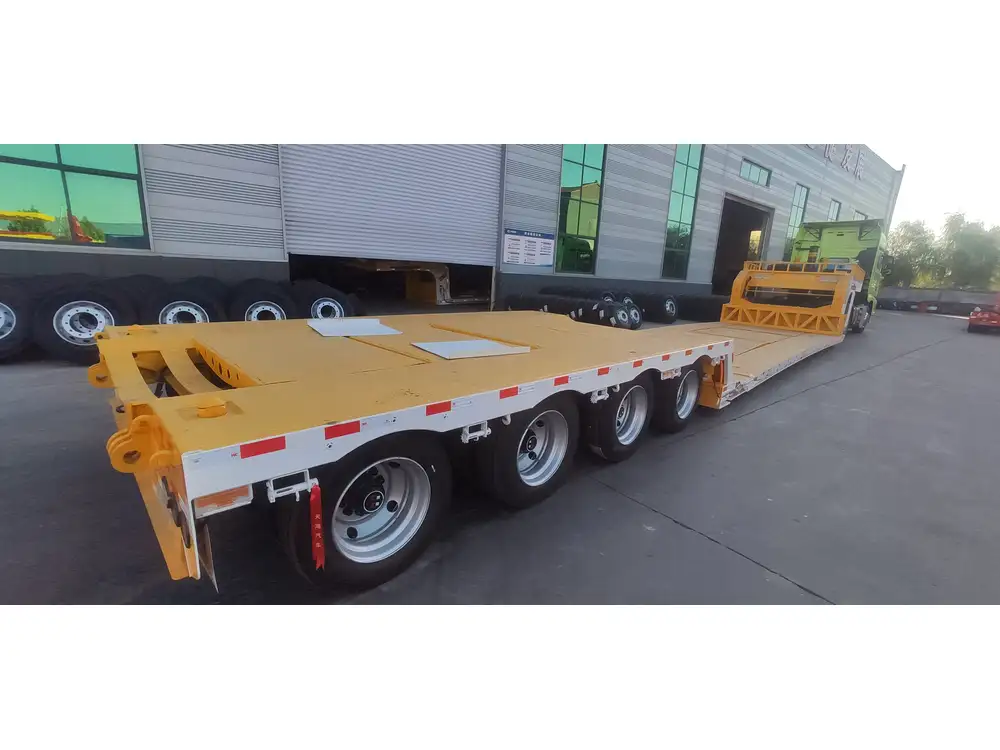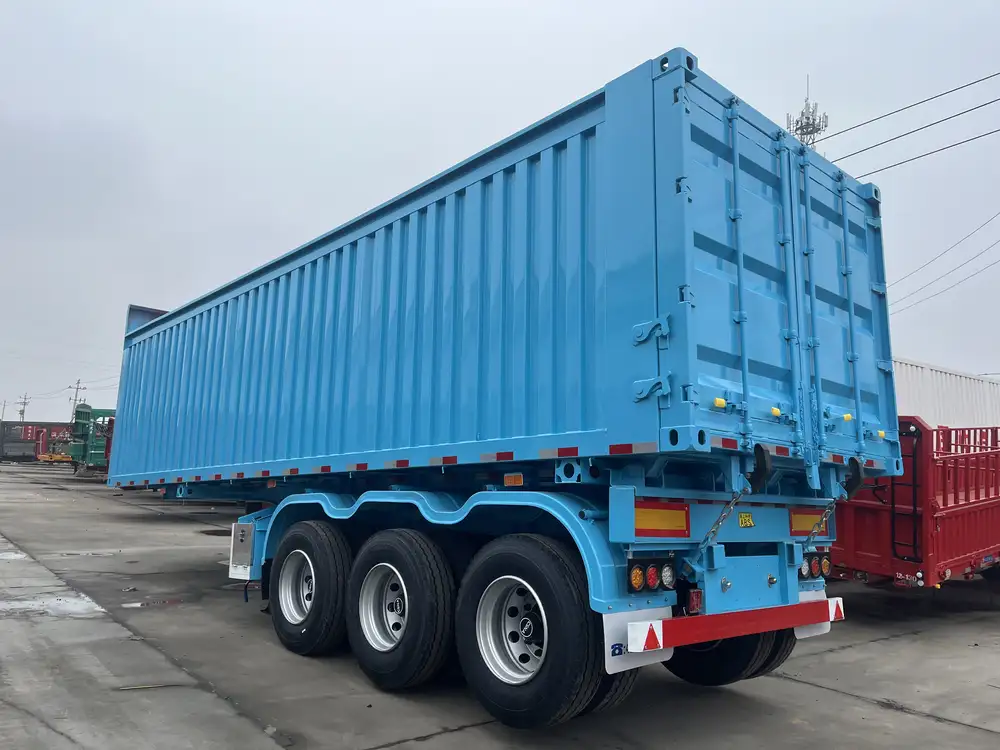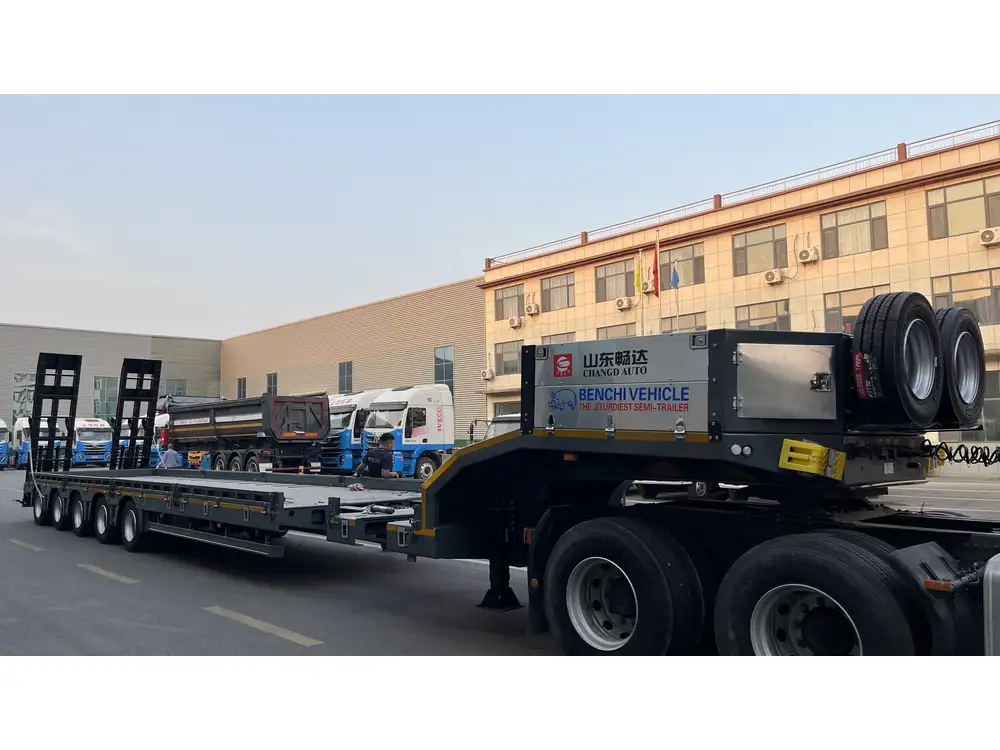In the realm of transportation and logistics, the significance of self-contained trailers cannot be underestimated. Their design and functionality serve as a robust solution to various operational challenges faced by manufacturers, distributors, and carriers alike. In this article, we delve deep into the core characteristics that define a self-contained trailer, exploring the intricate mechanics, benefits, and potential applications. By understanding what makes a trailer self-contained, businesses can make informed decisions about their transportation needs.
Key Features of a Self-Contained Trailer
1. Integrated Power Sources
One of the foremost elements that manifest a trailer’s self-contained nature is its integrated power sources. Such self-sufficiency allows for the operation of onboard systems without reliance on external power grids.
- Power Generators: Many self-contained trailers are equipped with diesel or propane generators that provide electricity for refrigeration units, lighting, or electronic equipment.
- Solar Panels: Increasingly, manufacturers are incorporating solar panels, providing a renewable source of energy that increases sustainability and further enhances independence.

2. Onboard Water Storage and Management
Water accessibility is another hallmark of a self-contained trailer. They are designed with systems that facilitate water storage, usage, and waste disposal.
- Fresh Water Tanks: For trailers that require water for operations, the presence of large capacity water tanks ensures that adequate supplies are maintained.
- Waste Management Systems: Self-contained trailers often come with onboard sanitation solutions that effectively manage waste disposal, essential for some applications.
3. Advanced Climate Control Mechanisms
Climate control is crucial for maintaining the integrity of goods during transportation. Self-contained trailers typically incorporate sophisticated climate control systems.
- Refrigeration Units: These trailers often feature advanced refrigeration systems that can be monitored and controlled independently.
- Insulation: Enhanced insulation materials are used to regulate internal temperatures, preventing spoilage and maintaining the quality of shipped goods.
Benefits of Self-Contained Trailers
Understanding the benefits is crucial for businesses to see why investing in self-contained trailers can be advantageous.

Cost Efficiency
While the initial investment may be higher, self-contained trailers lead to significant long-term savings. Businesses save on fuel costs due to efficiency and eliminate fees associated with utilities at loading and unloading sites.
Flexibility in Operations
Self-contained trailers grant operators the versatility to work in remote locations. This flexibility can be a game changer in industries such as construction, agriculture, and emergency services.
Enhanced Productivity
Fewer operational interruptions facilitate enhanced productivity. For example, the ability to operate in isolated areas without external power enhances logistics capabilities, allowing for seamless and continuous work processes.

Comparing Self-Contained Trailers vs. Standard Trailers
| Feature | Self-Contained Trailers | Standard Trailers |
|---|---|---|
| Power Supply | Integrated / Renewable | External Required |
| Water Management | Onboard Systems | External Access Required |
| Climate Control | Advanced & Independent | Basic or Rely on External |
| Flexibility in Remote Access | High | Low |
| Initial Cost | Higher | Lower |
Insights on the Comparison
The comparison above illustrates that while self-contained trailers might require a higher upfront investment, the operational capabilities they provide can yield a higher return on investment over time. Businesses must weigh their options and choose the configurations that best meet their transportation needs.
Common Applications of Self-Contained Trailers
Self-contained trailers find application in various industries, each catching distinct advantages:

1. Food Distribution
In the food industry, maintaining temperature-controlled environments is critical. Self-contained trailers with refrigeration units ensure that perishables reach their destination fresh and safe for consumption.
2. Emergency Services
During emergencies, quick deployment is vital. Self-contained trailers serve as mobile command units, equipped with everything from communication systems to medical supplies.
3. Construction Sites
On construction sites, a reliable source of power and water can transcend logistical challenges. Self-contained trailers offer mobile solutions, providing workspaces with essential amenities.

Challenges and Considerations When Choosing Self-Contained Trailers
Despite their many advantages, there are challenges associated with utilizing self-contained trailers. It’s imperative to address these factors during selection:
1. Maintenance and Upkeep
Self-sustained systems require continuous maintenance to ensure optimal performance. Businesses must allocate resources for regular inspections of power generators, refrigeration units, and waste management systems.
2. Initial Investment Costs
As previously mentioned, while the long-term savings can be significant, the initial cost can deter some businesses. A thorough cost-benefit analysis is crucial before making such investments.

3. Regulatory Compliance
Trailers may require certifications and compliance with safety standards, especially if used for transporting food or hazardous materials. It’s essential to stay abreast of local regulations to avoid legal pitfalls.
The Future of Self-Contained Trailers
The landscape of self-contained trailers is ever-evolving. Here are potential future trends:
1. Smart Technology Integration
With the rise of IoT (Internet of Things), incorporating smart technology into self-contained trailers is becoming increasingly common. Features such as remote temperature monitoring, GPS tracking, and automated alerts for maintenance issues are set to enhance operational efficiency.

2. Eco-Friendly Innovations
As sustainability becomes a priority, expect to see more trailers featuring electric engines, enhanced insulation for energy efficiency, and solar-powered systems. This not only reduces carbon footprints but can also lead to substantial savings in operational costs.
3. Customization Options
Manufacturers are likely to offer more customizable options, allowing businesses to tailor trailers to their specific requirements – be it for food service, medical applications, or logistics operations.
Conclusion: Making the Right Choice
Investing in self-contained trailers is a strategic decision that can yield extensive benefits across various industries. By understanding what makes trailers self-contained, businesses can enhance operational efficiency and adaptability. Recognizing the features, benefits, potential challenges, and future trends helps organizations make informed decisions that align with their logistical needs.
In this complex and competitive business environment, making the right choice about your transportation solutions can make all the difference. Whether you are in food service, construction, or emergency response, a self-contained trailer may be exactly what you require to streamline your operations and stay ahead of the competition.



